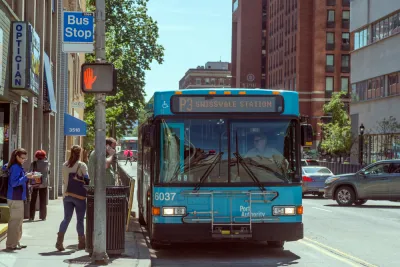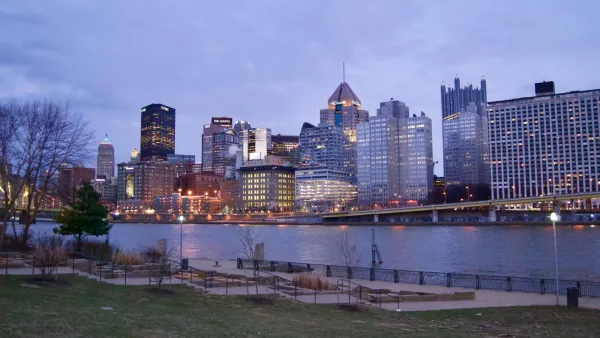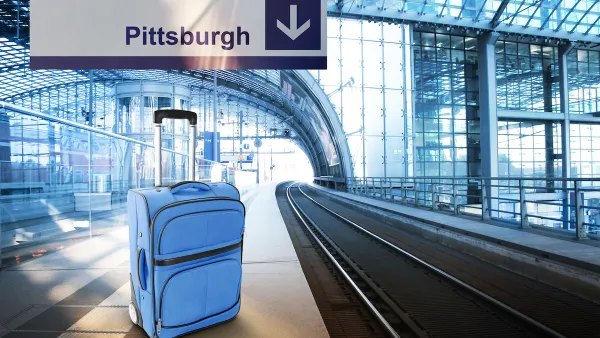After four years of delays, the agency is ready to implement a five-year plan setting the foundation for its long-term goals to improve and expand service.

As Ed Blazina reports in the Pittsburgh Post-Gazette, Pittsburgh Regional Transit has completed a five-year internal strategic plan to improve service as part of its long-range 25-year plan, approved by the Port Authority of Allegheny County last year. “The plan not only sets core values — such as providing clean, efficient and courteous service and expanding it to meet the needs of riders — but it also sets goals for reaching certain benchmarks and will provide training so employees are equipped to meet those goals.”
According to the agency’s Chief Strategy Officer Donny Hamilton Jr., accountability is one of the major goals of the plan. “By 2027-28, we’ll be trying to show results.” Long-term plans include extending the T light rail system, adding bus-only lanes, and extending existing busways.
“The agency also wants to keep its focus on equity, both in terms of the service it provides and the role it plays in the community as a major employer that has more than 2,700 employees and spends more than $600 million a year in capital and operating expenses.”

National Parks Layoffs Will Cause Communities to Lose Billions
Thousands of essential park workers were laid off this week, just before the busy spring break season.

Retro-silient?: America’s First “Eco-burb,” The Woodlands Turns 50
A master-planned community north of Houston offers lessons on green infrastructure and resilient design, but falls short of its founder’s lofty affordability and walkability goals.

Delivering for America Plan Will Downgrade Mail Service in at Least 49.5 Percent of Zip Codes
Republican and Democrat lawmakers criticize the plan for its disproportionate negative impact on rural communities.

Test News Post 1
This is a summary

Test News Headline 46
Test for the image on the front page.

Balancing Bombs and Butterflies: How the National Guard Protects a Rare Species
The National Guard at Fort Indiantown Gap uses GIS technology and land management strategies to balance military training with conservation efforts, ensuring the survival of the rare eastern regal fritillary butterfly.
Urban Design for Planners 1: Software Tools
This six-course series explores essential urban design concepts using open source software and equips planners with the tools they need to participate fully in the urban design process.
Planning for Universal Design
Learn the tools for implementing Universal Design in planning regulations.
EMC Planning Group, Inc.
Planetizen
Planetizen
Mpact (formerly Rail~Volution)
Great Falls Development Authority, Inc.
HUDs Office of Policy Development and Research
NYU Wagner Graduate School of Public Service





























